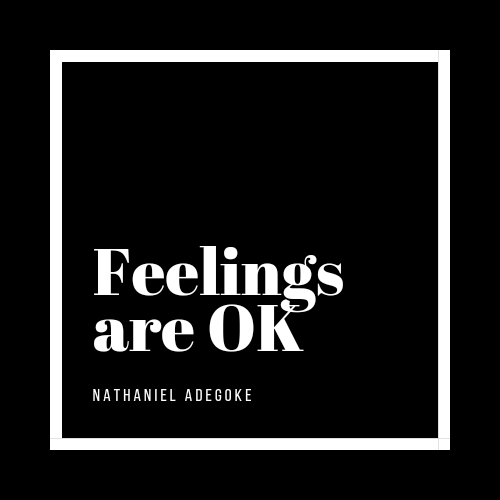Understanding your behaviour through the eyes of other people is critically important if you’ll indeed be successful. Many people can’t separate their motives from the way their actions make other people feel. They assume that because they did not mean bad, they’re absolved from taking responsibility for how their actions might have hurt others.
Self awareness isn’t an extension of self-centredness.
It is that positive introspection that recognises that other people may have been impacted by our actions in ways that we do not intend and that that alone deserves some acknowledgement and maybe restitution.
A lot of us, myself inclusive, find introspection a little bit uncomfortable. Looking at our hearts, motives and patterns under a microscope and critically analysing how our actions affect us and others can be unsettling and therefore makes us indulge in escapism.
We nonetheless must constantly check in with ourselves and our emotions, catch your signals on time, pause and ask, “what am I feeling?”, “what did I do that might be responsible for my outcome?”, “what’s the most important thing to me right now?”.
If we can answer these questions truthfully and critically and also very often, we will be happier and that’s true success.
We need to acknowledge and validate our emotions.
It could be anything from anger to sadness and even outright frustration. Feelings are OK. What we do with them determines if they’ll be empowering or disempowering.

I had a fallout with my Bestie last week. I had indirectly hurt him and he had brought it to my attention. I apologised. However, there were other issues around the situation I felt entitled to get clarification on and certain information about. He thought I went about my demands the wrong way and he refused to oblige me. I in turn felt hurt and angry. While I was thinking about what happened and what I could have done differently, I came up with some ideas I’ll like to share with you.
Because human relationships can be hard sometimes, it takes a lot of maturity, vulnerability and openness to navigate the challenges that come with interacting with species with complex emotions and programming like homo sapiens. If you’ve hurt someone or find yourself in a conflict situation, here are tips that can help you resolve issues quickly and amicably.
1. Practice compassionate curiosity. Ask questions that seek to understand how you might have hurt the other person and what you can do to avoid reoccurrence. You’re not dwelling in self-righteous zone here, however you’re indeed curious and looking to know how the other person is not only feeling but also how they have interpreted the events and circumstances that led to the offence. The best approach here won’t be to give excuses or explain away your actions but to affirm the other person’s feelings even if you don’t think they’re right to feel what they’re feeling.
2. Engage in seeking joint solution. Remember that resolution is the goal not winning an argument. Your biggest objective is to settle the conflict. Winning an argument is almost always a win-lose situation. I’m particularly good at this. I jokingly say I would have made an excellent lawyer because I’m extremely logical and analytical. However it never helps when you go into a conflict resolution situation with weapons and strategies to win.
3. Decipher what the other party wants and be willing to make compromises. Sometimes what they want is emotional and not even specific actions. They may want to be heard, seen, apologised to etc. It’s important to recognise these and provide what’s needed if within your power to do so. They actually may not be able to communicate what it is that they want and that is why you must be willing to seive through the clutter of information, ask relevant questions respectfully and get to the root of their needs.
While you’re engaging, it is possible that you have some information you’re struggling to process or that you’re getting too emotional and the atmosphere is becoming too charged. Take time out if necessary. Communicate reasonably that you want to seek some time to process things alone and then come back at a later time to discuss further.
When both of you are angry and you’re the only one following this guidelines, you may be tempted not to follow through with this constructive approach to conflict resolution, don’t give up. We’re all evolving and not everyone is at the same level of self awareness (that’s why you should share this article with everyone within your circle). 😁
Lastly, conflict isn’t a bad thing. It helps us find out where there are misalignments in our relationships and sometimes they tell us which ones to work on and which to let go of. Proper conflict resolution isn’t about fixing every single broken relationship. Some broken relationships are best left broken.
I pray your relationships will get better and that your experiences with those you love will be richer and more fulfilling.



